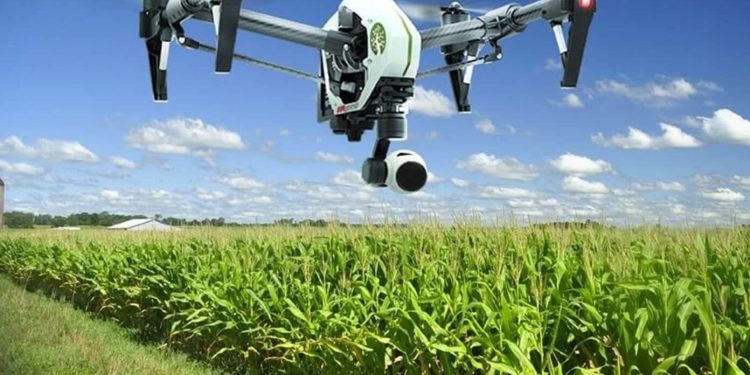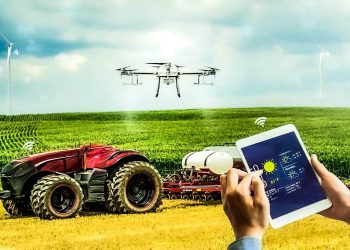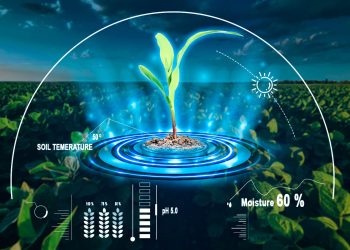The need for sustainable food is increasing as a result of the looming consequences of change in climate and the world’s growing population, which is anticipated to reach nine billion people by 2050. According to research from Michigan State University, production levels of global agriculture will need to expand by 60-70 percent to address the rising demand. Because soybeans are one of the most widely farmed crops in the United States, American soybean farmers are at the frontline of the issues in climate, constantly working to provide sustainable food to households all across the world.
Agriculture technological advancements play a critical part in farmers’ capability to fulfill rising demand while simultaneously being environmentally conscious. As the climate changes, soybean farmers in the United States evolves and play a crucial role in determining the success of farming. They focus on improving innovations and are making investments in technological advancements to operate their farms more sustainably, an advantage valued by farmers, customers, and food industries remarkably similar.
Healthy Soil is the Start of Sustainability
The agricultural sector has seen tremendous development in areas such as seed technology, equipment design, and precision planting, but the industry’s focus on assessing the positive effects of advanced soil management practices is considered as a crucial development, which is critical to agriculture’s progression. Meagan Kaiser, a soil scientist and soybean farmer from Missouri state, “Soil health is a vital component of sustainable farming.” “Healthy soil can help to prevent flooding and droughts, as well as increase crop production.” Farmers maintain soil health by constantly reviewing nutrients, water, and pests, employing cover crops, and adopting measures like crop rotation and conservation tillage. It’s critical that we continue to take steps and advances in this field to ensure that we can meet rising demand and improve farming’s future.
Soybean farmers in the United States seek to be global leaders in environmental sustainability and soil health programed. The United Soybean Board stands with the efforts of the industry to improve soil health measures in order to assist the country’s 515,000 soybean farmers in achieving their sustainability objectives. They have recently supported firms like SoilMetrics, which develops software to help farmers understand their existing emissions of greenhouse gases and evaluate methods for lowering emissions.
Farmers Can Grow More with Less by AgTech Advancements
Besides concentrating on the health of the soil, technology is important in many aspects of agriculture. With advancements in on-farm technology, farmers can grow more food on the minimum area with greater precision when applying fertilizer, water, and pesticides, which helps to safeguard the land and surrounding waterways. Farmers must deal with a variety of climates, soil compositions, and economic realities, therefore technological developments are essential for effective and long-term farming.
Today’s farmers make use of contemporary tools such as:
-
Sustainable Strategies Focused on Continuous Improvisation
No-till farming, cover crops, and crop rotation are examples of agricultural practices that enhance the amount of carbon in the soil and work to restore the soil’s health and maintain it for long-term utilization.
-
Autonomous Farming
Artificial intelligence (AI), robots, and auto-steer technology strive to improve reliability and efficiency while also providing cost-effective and effective equipment to fulfill the demands of our rising population.
-
Precision Farming
Precision farming, which is enabled by GPS, drones, and satellites, employs technology to effectively plant seeds, water crops, apply fertilizer, and more, boosting crop yields while optimizing the effect of all resources – minimizing wastage and runoff.
-
Bioengineering
Farmers are using the most up-to-date seed technology, which results in fewer herbicide applications, reduced weed and pest pressure, higher yield and earnings, as well as a plethora of environmental benefits.
Making Substantial Advancements towards Sustainability Goals of U.S. Soy
As guardians of the land, soybean farmers in the United States work on using sustainable methods to minimize the environmental impact of cultivation. They are dedicated to long-term sustainability and are working hard to achieve their objectives. Soybean farmers in the United States hope to achieve the following goals by 2025:
- Reduce the impact of land use by 10percent.
- Minimize soil erosion by an additional 25 percent.
- Increase the efficiency of energy use by 10 percent.
- And minimize total greenhouse gas emissions by 10 percent.
Soybean farmers in the United States have achieved significant improvement in recent years. Thanks to advances in agricultural tools and technology, they have already surpassed their land efficiency objective and are midway to their soil erosion target. Soybean growers in the United States are continuing to push the firm’s boundaries in order to satisfy the demands of our rising population while also exceeding their sustainability goals.
Wrapping Up!
The latest launch of U.S. Soy’s Sustainable U.S. Soy Mark will assist organizations that are eager to demonstrate their dedication to establishing a more sustainable future. The mark certifies soy ingredients farmed in the United States as sustainable inclusions for the production of food. While you view the mark on a product, you can be confident that the soy ingredients were farmed sustainably and are assisting to make the world a healthier place for everyone.








